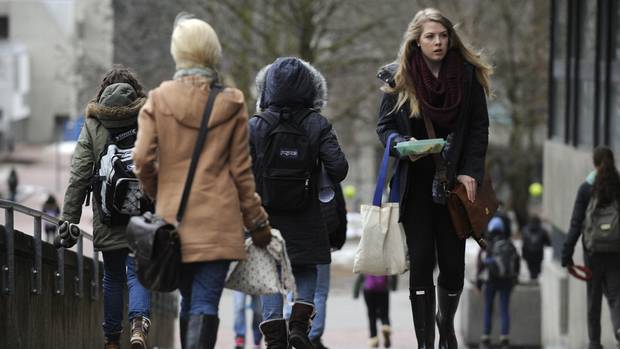The University of Guelph is shuttering two agricultural campuses in Eastern Ontario, looking to save millions of dollars as enrolments have fallen.
The university’s campuses in Kemptville and Alfred, Ont., both near Ottawa, are no longer accepting new students and will stop teaching at the end of 2015. Nearly all their existing programs will be relocated or replaced at other schools, but the move will still cause at least 112 job losses.
As provincial funding tightened and fewer students enrolled in diploma and bachelor’s programs, the two campuses became unsustainable, said Alastair Summerlee, the U of Guleph’s president. The move allows the university to shift nearly $7-million to the relocated programs and other research needs at a time when his school is trying to close a $32.4-million budget gap and facing pressure from the province to be more efficient.
“The whole thing is just not working,” Dr. Summerlee said. “… The students are no longer regional. The jobs are no longer as regional as they were.”
The two campuses, which Guelph began managing in 1997, enrolled about 145 students this year in diploma and bachelor’s programs ranging from horticulture to food and equine disciplines, plus dozens more in short-course certifications like welding. Kemptville focused mostly on agronomy, and the Alfred location is Ontario’s only French-language agricultural college.
Closing the Campus d’Alfred, which had only 24 students this year, will save Guelph $2.3-million in costs. The university has agreements in principle with Collège Boréal in Sudbury and Collège La Cité in Ottawa to continue the existing programs “so the system will continue to offer educational programs for Francophones in agriculture,” Dr. Summerlee said.
Nearly all diploma programs at Kemptville will move to Guelph’s Ridgetown campus in southwestern Ontario, while a bachelor of bio-resource management degree program will relocate to the main campus in Guelph. The lone diploma program that won’t continue will be a food nutrition diploma for which “we have struggled to get five people (enrolled),” Dr. Summerlee said.
But the university plans to cut more than a hundred full-time jobs at the two campuses, plus some part-time and casual work, which is expected to leave a lasting impression on the local communities.
Most of the programs offered at the two campuses earned low rankings in a recent exercise the U of Guelph undertook to score all of its operations based on a U.S.-based consultant’s model, as a way of deciding priorities. The university has three more years to close a projected budget deficit of $32.4-million and is facing hard decisions, though Dr. Summerlee said the campus closures would only put “a very small dent” in the deficit because of the unique way the province funded the campuses.
“What it will actually do is to improve our productivity,” he said.
JAMES BRADSHAW
The Globe and Mail
Published Wednesday, Mar. 12 2014, 12:40 PM EDT
Last updated Wednesday, Mar. 12 2014, 1:14 PM EDT

